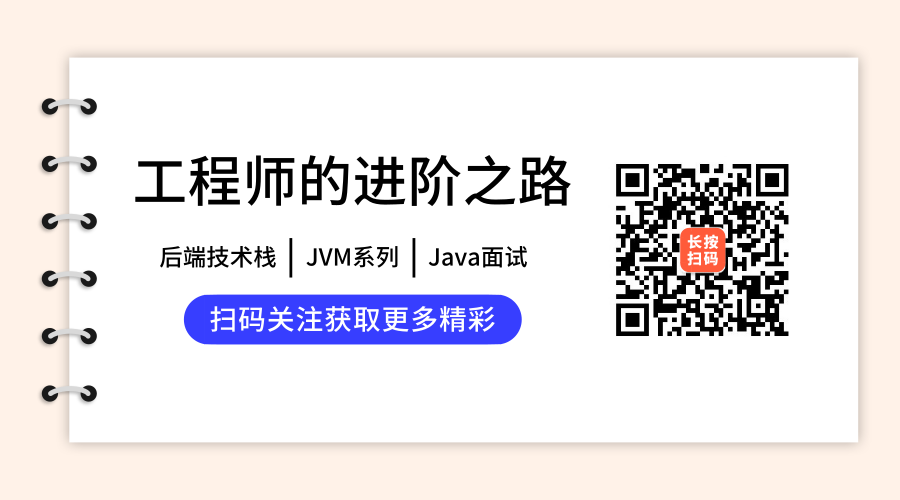在Spring Boot项目中使用Spock测试框架
Spock框架是基于Groovy语言的测试框架,Groovy与Java具备良好的互操作性,因此可以在Spring Boot项目中使用该框架写优雅、高效以及DSL化的测试用例。Spock通过 @RunWith 注解与JUnit框架协同使用,另外,Spock也可以和Mockito( Spring Boot应用的测试——Mockito 一起使用。
在这个小节中我们会利用Spock、Mockito一起编写一些测试用例(包括对Controller的测试和对Repository的测试),感受下Spock的使用。
实战
- 根据 Building an Application with Spring Boot 这篇文章的描述, spring-boot-maven-plugin 这个插件同时也支持在Spring Boot框架中使用Groovy语言。
- 在pom文件中添加Spock框架的依赖
<!-- test --> <dependency> <groupId>org.springframework.boot</groupId> <artifactId>spring-boot-starter-test</artifactId> <scope>test</scope> </dependency> <dependency> <groupId>org.spockframework</groupId> <artifactId>spock-core</artifactId> <scope>test</scope></dependency> <dependency> <groupId>org.spockframework</groupId> <artifactId>spock-spring</artifactId> <scope>test</scope> </dependency>
- 在src/test目录下创建groovy文件夹,在groovy文件夹下创建com/test/bookpub包。
- 在resources目录下添加 packt-books.sql 文件,内容如下所示:
INSERT INTO author (id, first_name, last_name) VALUES (5, 'Shrikrishna', 'Holla');
INSERT INTO book (isbn, title, author, publisher) VALUES ('978-1-78398-478-7', 'Orchestrating Docker', 5, 1);
INSERT INTO author (id, first_name, last_name) VALUES (6, 'du', 'qi');
INSERT INTO book (isbn, title, author, publisher) VALUES ('978-1-78528-415-1', 'Spring Boot Recipes', 6, 1);
- 在 com/test/bookpub 目录下创建 SpockBookRepositorySpecification.groovy 文件,内容是:
package com.test.bookpubimport com.test.bookpub.domain.Author
import com.test.bookpub.domain.Book
import com.test.bookpub.domain.Publisher
import com.test.bookpub.repository.BookRepository
import com.test.bookpub.repository.PublisherRepository
import org.mockito.Mockito
import org.springframework.beans.factory.annotation.Autowired
import org.springframework.boot.test.SpringApplicationContextLoader
import org.springframework.context.ConfigurableApplicationContext
import org.springframework.jdbc.datasource.init.DatabasePopulatorUtils
import org.springframework.jdbc.datasource.init.ResourceDatabasePopulator
import org.springframework.test.context.ContextConfiguration
import org.springframework.test.context.web.WebAppConfiguration
import org.springframework.test.web.servlet.MockMvc
import org.springframework.test.web.servlet.setup.MockMvcBuilders
import spock.lang.Sharedimport spock.lang.Specification
import javax.sql.DataSourceimport javax.transaction.Transactional
import static org.hamcrest.Matchers.containsString;
import static org.springframework.test.web.servlet.request.MockMvcRequestBuilders.get;
import static org.springframework.test.web.servlet.result.MockMvcResultMatchers.content;
import static org.springframework.test.web.servlet.result.MockMvcResultMatchers.status;
@WebAppConfiguration
@ContextConfiguration(classes = [BookPubApplication.class,
TestMockBeansConfig.class],loader = SpringApplicationContextLoader.class)
class SpockBookRepositorySpecification extends Specification {
@Autowired
private ConfigurableApplicationContext context;
@Shared
boolean sharedSetupDone = false;
@Autowired
private DataSource ds;
@Autowired
private BookRepository bookRepository;
@Autowired
private PublisherRepository publisherRepository;
@Shared
private MockMvc mockMvc;
void setup() {
if (!sharedSetupDone) {
mockMvc = MockMvcBuilders.webAppContextSetup(context).build();
sharedSetupDone = true;
}
ResourceDatabasePopulator populator = new
ResourceDatabasePopulator(context.getResource("classpath:/packt-books.sql"));
DatabasePopulatorUtils.execute(populator, ds);
}
@Transactional
def "Test RESTful GET"() {
when:
def result = mockMvc.perform(get("/books/${isbn}"));
then:
result.andExpect(status().isOk())
result.andExpect(content().string(containsString(title)));
where:
isbn | title
"978-1-78398-478-7"|"Orchestrating Docker"
"978-1-78528-415-1"|"Spring Boot Recipes"
}
@Transactional
def "Insert another book"() {
setup:
def existingBook = bookRepository.findBookByIsbn("978-1-78528-415-1")
def newBook = new Book("978-1-12345-678-9", "Some Future Book",
existingBook.getAuthor(), existingBook.getPublisher())
expect:
bookRepository.count() == 3
when:
def savedBook = bookRepository.save(newBook)
then:
bookRepository.count() == 4
savedBook.id > -1
}
}
- 执行测试用例,测试通过
- 接下来试验下Spock如何与mock对象一起工作,之前的文章中我们已经在 TestMockBeansConfig 类中定义了 PublisherRepository 的Spring Bean,如下所示,由于@Primary的存在,使得在运行测试用例时Spring Boot优先使用Mockito框架模拟出的实例。
@Configuration
@UsedForTesting
public class TestMockBeansConfig {
@Bean
@Primary
public PublisherRepository createMockPublisherRepository() {
return Mockito.mock(PublisherRepository.class);
}
}
- 在BookController.java中添加getBooksByPublisher接口,代码如下所示:
@Autowired
public PublisherRepository publisherRepository;
@RequestMapping(value = "/publisher/{id}", method = RequestMethod.GET)
public List<Book> getBooksByPublisher(@PathVariable("id") Long id) {
Publisher publisher = publisherRepository.findOne(id);
Assert.notNull(publisher);
return publisher.getBooks();
}
- 在 SpockBookRepositorySpecification.groovy 文件中添加对应的测试用例,
def "Test RESTful GET books by publisher"() {
setup:
Publisher publisher = new Publisher("Strange Books")
publisher.setId(999)
Book book = new Book("978-1-98765-432-1",
"Mytery Book",
new Author("Jhon", "Done"),
publisher)
publisher.setBooks([book])
Mockito.when(publisherRepository.count()).
thenReturn(1L);
Mockito.when(publisherRepository.findOne(1L)).
thenReturn(publisher)
when:
def result = mockMvc.perform(get("/books/publisher/1"))
then:
result.andExpect(status().isOk())
result.andExpect(content().string(containsString("Strange Books")))
cleanup:
Mockito.reset(publisherRepository)
}
- 运行测试用例,发现可以测试通过,在控制器将对象转换成JSON字符串装入HTTP响应体时,依赖Jackson库执行转换,可能会有循环依赖的问题——在模型关系中,一本书依赖一个出版社,一个出版社有包含多本书,在执行转换时,如果不进行特殊处理,就会循环解析。我们这里通过 @JsonBackReference 注解阻止循环依赖。
分析
可以看出,通过Spock框架可以写出优雅而强大的测试代码。
首先看SpockBookRepositorySpecification.groovy文件,该类继承自Specification类,告诉JUnit这个类是测试类。查看Specification类的源码,可以发现它被@RunWith(Sputnik.class)注解修饰,这个注解是连接Spock与JUnit的桥梁。除了引导JUnit,Specification类还提供了很多测试方法和mocking支持。
Note:关于Spock的文档见这里: Spock Framework Reference Documentation
根据《单元测试的艺术》一书中提到的,单元测试包括:准备测试数据、执行待测试方法、判断执行结果三个步骤。Spock通过setup、expect、when和then等标签将这些步骤放在一个测试用例中。
- setup:这个块用于定义变量、准备测试数据、构建mock对象等;
- expect:一般跟在setup块后使用,包含一些assert语句,检查在setup块中准备好的测试环境
- when:在这个块中调用要测试的方法;
- then : 一般跟在when后使用,尽可以包含断言语句、异常检查语句等等,用于检查要测试的方法执行后结果是否符合预期;
- cleanup:用于清除setup块中对环境做的修改,即将当前测试用例中的修改回滚,在这个例子中我们对publisherRepository对象执行重置操作。
Spock也提供了setup()和cleanup()方法,执行一些给所有测试用例使用的准备和清除动作,例如在这个例子中我们使用setup方法:(1)mock出web运行环境,可以接受http请求;(2)加载packt-books.sql文件,导入预定义的测试数据。web环境只需要Mock一次,因此使用sharedSetupDone这个标志来控制。
通过@Transactional注解可以实现事务操作,如果某个方法被该注解修饰,则与之相关的setup()方法、cleanup()方法都被定义在一个事务内执行操作:要么全部成功、要么回滚到初始状态。我们依靠这个方法保证数据库的整洁,也避免了每次输入相同的数据。
Spring Boot 1.x系列
- Spring Boot的自动配置、Command-line-Runner
- 了解Spring Boot的自动配置
- Spring Boot的@PropertySource注解在整合Redis中的使用
- Spring Boot项目中如何定制HTTP消息转换器
- Spring Boot整合Mongodb提供Restful接口
- Spring中bean的scope
- Spring Boot项目中使用事件派发器模式
- Spring Boot提供RESTful接口时的错误处理实践
- Spring Boot实战之定制自己的starter
- Spring Boot项目如何同时支持HTTP和HTTPS协议
- 自定义的Spring Boot starter如何设置自动配置注解
- Spring Boot项目中使用Mockito
本号专注于后端技术、JVM问题排查和优化、Java面试题、个人成长和自我管理等主题,为读者提供一线开发者的工作和成长经验,期待你能在这里有所收获。

- 本文标签: JDBC spring tab UI CTO Docker src plugin JVM 目录 源码 js 配置 代码 json build ORM mongo classpath https map RESTful 实例 dataSource bean 专注 测试 ip sql 管理 DOM 开发 Action 模型 定制 servlet cat NSA Document REST Property Spring Boot junit 协议 pom 数据库 redis 解析 插件 文章 id 单元测试 web maven find 数据 MongoDB list http 测试环境 java db tar 开发者 App value core IO
- 版权声明: 本文为互联网转载文章,出处已在文章中说明(部分除外)。如果侵权,请联系本站长删除,谢谢。
- 本文海报: 生成海报一 生成海报二











![[HBLOG]公众号](https://www.liuhaihua.cn/img/qrcode_gzh.jpg)

